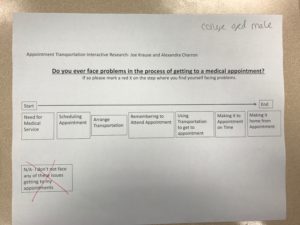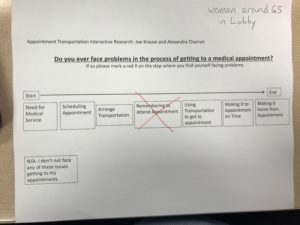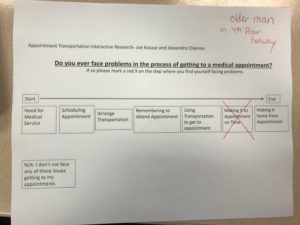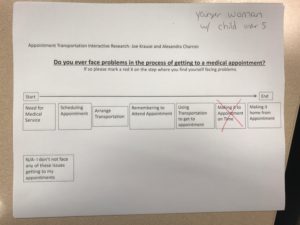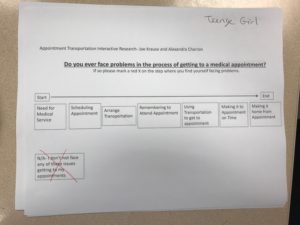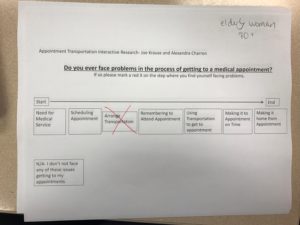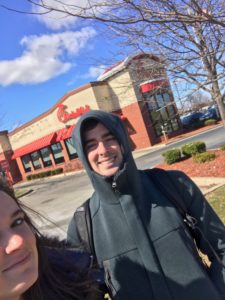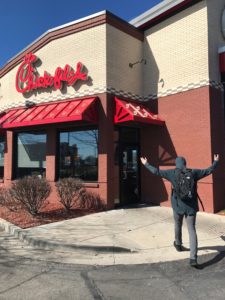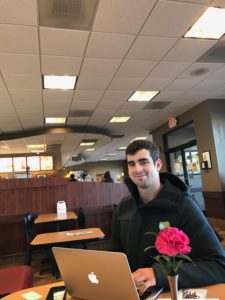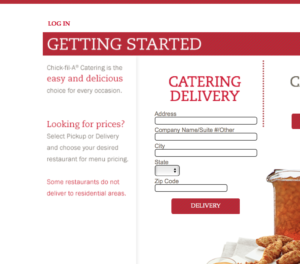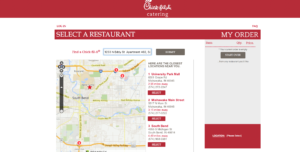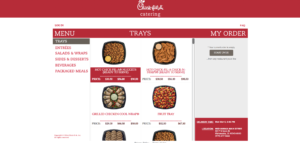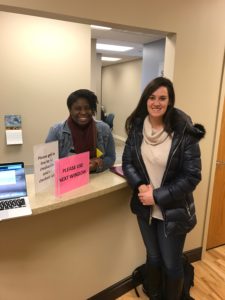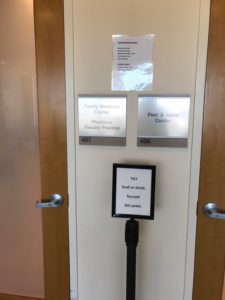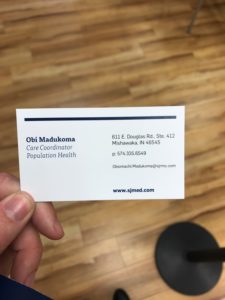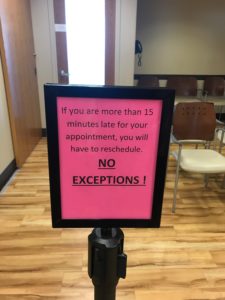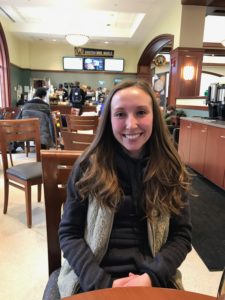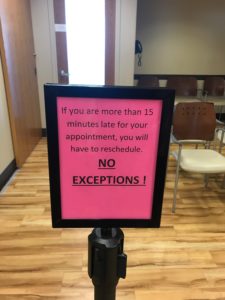*This post is supplemental info from the Interactive Ethnographic Research done by Alex and Joe. (Joe’s perspective)
Interactive Ethnography
Date: 3/3/17
Location: St Joseph Health Systems Mishawaka Medical Center.
Participants: Alexandra Charron and Joe Krause
As described in a recent post, the team went to Saint Joseph’s Regional Medical Center and conducted interactive research by having people identify their transportation issues on a journey map. The team asked a total of 9 people, “Do you ever face problems in the process of getting to a medical appointment?” They then handed them a journey map and had them mark an X where they faced problems.
This was a great way to gain anonymous information from people, especially since lack of access to transportation can be a touchy subject. The team made sure to ask people of different demographics in order to understand various perspectives.
Key insights:
- This was an effective method because people were able to easily ID what problems they have through their basic instincts. They were often caught off guard, which allowed them to ID their problems without much thinking.
- 4 of the interviewees did not have any transportation problems getting to appointments.
- 2 of the interviewees sometimes had a difficult time arranging transportation.
- 2 of the interviewees were often late to their appointments.
- 1 of the interviewees missed appointments on occasion due to forgetfulness.
A more detailed summary of the interactive is displayed below in a blog post by Alex Charron, along with various pictures of the research.
The teams originally journey map is also attached below this blog post.
